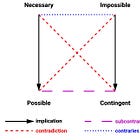How to Leave the Dishes in the Sink
Try it tonight and see what happens.
Your body has clearly voted for rest, yet your hands keep circling a plate that doesn’t matter nearly as much as sleep.

That’s the moment to pause. Let your shoulders drop and name the invisible script that’s running:
Ah, there’s that dependable-one reflex again.
The instant you give an impulse a name, it turns from a command you must obey into a pattern you can get curious about.
If you stay in that pause, a story often emerges to explain the motion. Maybe it’s the old moral tally:
Good people finish what they start.
Maybe it’s a flicker of dread:
Someone will think I’m lazy.
Sometimes it’s just sensory tension—the mess feels too loud for your nervous system to unclench.
Or maybe it’s a performance: an immaculate home as quiet proof that you’re on top of things.
Whatever voice steps forward, just noticing it begins to loosen its knot. This is when, instead of returning to the sink, you can ask a few slow questions:
Why this, right now?
Who truly benefits first if I keep going?
What image of myself am I polishing?
When the pressure drains out, will I still care?
When you hear the familiar thought,
I should finish,
you can gently counter it with,
Would rested-tomorrow-me do this faster and with less resentment?
When you feel the pull to reply to a late-night message, you can wonder,
Would a quick “More on this tomorrow” actually serve us both better?
These aren’t excuses; they’re pulse checks on where your energy truly wants to go.
Then you can try it in the real world.
Leave one plate leaning in the sink.
Mute a single notification.
Decline one plan that nourishes others more than it restores you.
And watch what happens.
Nine times out of ten, nothing cracks. The world does not end.
After each tiny refusal, you can take a moment to reflect.
Did anyone’s safety actually wobble?
Did people, maybe, treat your time with a little more respect?
Did something you’ve been holding down finally get a chance to breathe?
These ripples are calibration points. They’re reminders that your world can adjust.
Slowly, this small act of leaving the dishes can spread.
Maybe “dish amnesty after dark” becomes a new rhythm in your home.
Maybe your work team learns that Slack gets quiet after six because they feel your changed pace.
This isn’t neglect. It’s pacing. It’s responsibility with room to breathe.
You weren’t meant to be everyone’s non-stick surface, frictionless and always available. One dish left overnight is a small, sturdy experiment proving the world can route around your pauses. Your usefulness will rise and fall. Your wholeness is non-negotiable.
So tonight, let the dirty plate soak.
Or let the suds dry into streaks.
Hell, maybe even let your breath return to its full length.
Life will still be here in the morning—ready to meet you on terms that include you, too.

